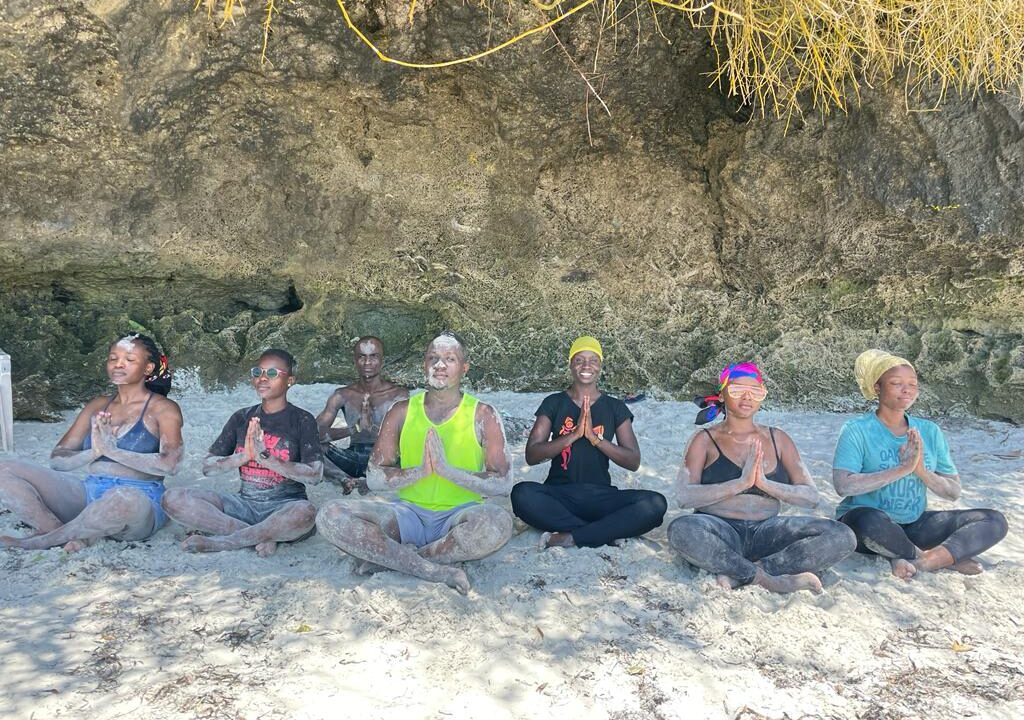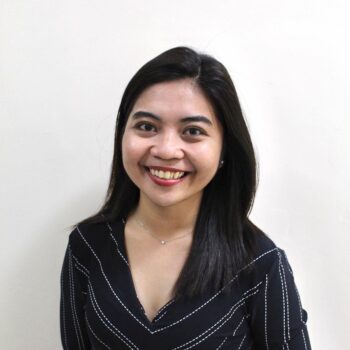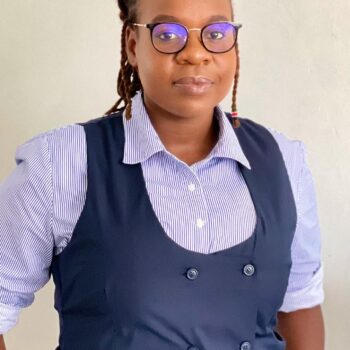Practicing care is both ethical and political. It is radical to care in societies in which inequality is the norm and marginalized communities are stripped of their humanity. Particularly in conflict-affected states, the frequency of relapse and the repetition of violence necessitate new techniques and methods for political education and organizing. Public education, mutual aid projects, campaigning, and social advocacy are all ways of practicing care. We believe that such care work is essential not only to meeting young people’s basic needs but also to creating peaceful and just communities.
This article highlights youth organizing centered on community care in Kenya and the Philippines, where each of us is building healthy, youth-led social networks that create a sense of belonging and provide a vehicle for young people to make change in their communities. As community organizers in developing countries with a history of conflict and violence, we face similar obstacles. These obstacles include neglect of minority and marginalized groups by the state, lack of social safety, inadequate access to public services, poverty, unemployment, insecurity, and state violence. Both Kenya and the Philippines suffer from corruption and failure by the state to guarantee fundamental freedoms and provide social services for its people. In both countries, communities have become accustomed to paying bribes for services; access to basic dignity comes with a price.
Youth organizers are working to uplift their communities’ socio-economic status while amplifying their own voices in decision-making processes. Even though both Kenya and the Philippines have large populations of young people, they are still largely excluded from leadership roles, including on youth development projects. Young people are eager to make a difference, but some are turning to extremism and violence due to social exclusion and lack of opportunities. Others seek revenge for historical injustices or want to be part of a cause bigger than themselves.
Our organizations seek to counter these worrying trends by providing young people an opportunity to make their voices heard. By putting relationships of care at the center of this work, we are not only developing young people’s leadership but also laying the groundwork for peace. We believe that is in strong, caring, and respectful relationships that we can forge social change in our communities.
Our Organizing Approach
In Kenya, one of us, Wevyn, coordinates Isirika, a grassroots initiative that brings young people from local communities in Mombasa together to care for one another and to take action on social issues. One of the ways we practice care in our organizing is by enabling youth leadership. Young people determine the issues that we are addressing and how we address them. For example, our young members plan activities such as yoga, cycling, civic education, short-term credit facilities, informal discussions on mental health and unemployment, skills training, and social events. They pool individual resources to ensure we have the funds to support the activities. Decision-making is by consensus and opportunities to lead in the Steering Committee are open to all. In this way, Isirika strives to meet the community’s basic needs while building the leadership of young people.
In the Philippines, Lynrose coordinates community peacebuilding initiatives for the Young Women Leaders for Peace – Philippines (YW+L PH), a network of 42 youth-led organizations across the Philippines that mobilize young people to co-create peace initiatives in their communities. With support from the Global Network of Women Peacebuilders (GNWP), the network also provides funding for youth leaders to design and implement collaborative community peacebuilding initiatives, such as mental health services; distribution of hygiene and safety kits, educational kits, and healing packages; COVID-19 awareness and prevention campaigns; and social media events to prevent the spread of misinformation. Our youth leaders also hold online and in-person discussions aimed at young people on topics such as the peace process in Mindanao, political elections, and the impact of COVID. Through these initiatives, the network promotes young people’s personal development, nurtures their leadership capacity, and forges relationships among youth in the Philippines. We also help to bridge geographical barriers by putting young people in contact with other youth peacebuilders in Indonesia and Myanmar through the Young Women Leaders for Peace network.
Organizing During the Pandemic
When COVID first hit Kenya, Wevyn built a grassroots disaster relief network of over 100 volunteers — called Mutual Aid Kenya — which supported the purchase and distribution of essential supplies in Mombasa and Nairobi. Mutual aid is a common practice in many low-income communities in Kenya because of the government’s failure to provide basic social services. Additionally, many people live communally; even those with privilege support the needs of their fellow community members. We worked directly with young people within the ages of 18-30 who volunteered to provide aid within their communities and identify vulnerable families in need of care. Mutual Aid Kenya primarily provided short-term relief, but we also educated community health workers on COVID; strengthened community groups through trainings and financial resources to help them they could adapt their activities during the pandemic; birthed new community projects on access to virtual learning, sexual reproductive health, and vaccine equality; provided legal and logistical support to young community organizers for their campaigns against police brutality; and offered seed funding for young people and women to develop income-generating activities. In addition, a number of our volunteers went on to start long-term community initiatives. One of our volunteers started a campaign providing sanitary pads and sexual education; another started an organization promoting literacy among girls and women as well as fair return to school after the pandemic; yet another organization formed to advocate for vaccine equity. All of these are ongoing efforts.
Drawing lessons from Mutual Aid Kenya’s strategy, Wevyn also founded Isirika, a grassroots initiative for youth and women built on the longstanding Kenyan practice of communal living and care. Loosely translated, isirika means caring together for one another or equal generosity. It was practiced decades ago — before development actors and NGOs began working in rural communities. Isirika is not a project or a program but a way of living. People are our biggest resource, so Isikira centers on providing them care and investing in their wellbeing and development through community yoga and meditation, bike sharing programs, health services and advocacy, civic and political education, and community dialogues on peace and social cohesion. Other activities include cooperative and financial management training and community social events, such as potlucks, board game and movie nights. These events encourage relationship building based on common interests and respect for people and the planet. They also provide the basis for young people to collaborate and initiate new social change projects. For example, during our community potluck, a member suggested we develop a book club, volunteered to lead the initiative, and reached out to other members of the network to help implement the idea.
In the Philippines, YW+L also mobilizes young people to help respond to their community’s immediate needs. In March 2020, the YW+L leaders distributed dignity kits to 385 young women and girls in the Sagonsongan Transitory, where some Internally Displaced Persons (IDPs) live. The community had lived through a five-month armed conflict; access to healthcare as well as food, clean water, medication, and sanitary and hygiene products was limited. The dignity kits sought to address these needs while helping to prevent the spread of COVID. Each kit contained laundry and bath products, including sanitary napkins. We also included notes bearing the words “Manareg tano sa Walay, Sabet tano ko pagtao” or “Stay home, save lives,” along with infographics on how to prevent the spread of COVID-19. Our network has since responded to other disasters. When Typhoon Rai damaged multiple provinces in December 2021, we raised funds to purchase medicine and distributed dignity kits. Through the network, we were able to extend care to each other despite geographic distance and the restrictions of the pandemic.
Our network also holds an “online kamustahan” — a Filipino word that roughly translates to “checking in on each other” — for our members once or twice each month. We play games together and share updates on our lives. These sessions allowed us to sustain our work in the midst of a pandemic, armed conflict, and natural disaster by providing a support system for our members, many of whom are experiencing “hope fatigue” in the midst of such devastation.
Caring for the Movement
When people are struggling, survival — rather than care — becomes the priority. But self-care isn’t a luxury; it is essential to building societies in which everyone can live free and dignified lives. Simple practices like eating, playing games, or gathering around a bonfire together can go a long way to sustain our leaders and complement our explicitly political work — making our organizations more inclusive and sustainable and inspiring more people to get involved. Just as important, by giving young people a way to connect and collaborate, our care work helps them develop their leadership and bridges cultural, religious, and geographic divides. The more we provide space to see each other’s humanity, the more successful we will be in building peace.


